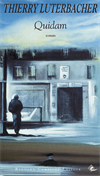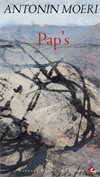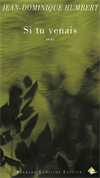Other Minds
1 journaler for this copy...
8 stars: Very good
From the back cover: Although mammals and birds are widely regarded as the smartest creatures on earth, it has lately become clear that a very distant branch of the tree of life has also sprouted higher intelligence: the cephalopods, consisting of the squid, the cuttlefish, and above all the octopus. In captivity, octopuses have been known to identify individual human keepers, raid neighboring tanks for food, turn off lightbulbs by spouting jets of water, plug drains, and make daring escapes. How is that a creature with such gifts evolved through an evolutionary lineage so radically distant from our own? What does it mean that evolution built minds not once but at least twice? Tracking the mind’s fitful development, Godfrey-Smith shows how unruly clumps of seaborne cells began living together and became capable of sensing, acting, and signaling. As these primitive organisms became more entangled with others, they grew more complicated. The first nervous systems evolved, probably in ancient relatives of jellyfish; later on, the cephalopods, which began as inconspicuous mollusks, abandoned their shells and rose above the ocean floor, searching for prey and acquiring the greater intelligence to do so. Taking an independent route, mammals and birds later began their own evolutionary journeys. But what kind of intelligence do cephalopods possess? Drawing on the latest scientific research, Godfrey-Smith probes the many mysteries that surround the lineage. How did the octopus, a solitary creature with little social skills, become so smart? What is it like to have eight tentacles that are so packed with neurons that they virtually “think for themselves”? What happens when some octopuses abandon their hermit-like ways and congregate, as they do in a unique location off the coast of Australia? By tracing the question of inner life back to its roots and comparing human beings with our most remarkable animal relatives, Godfrey-Smith casts crucial new light on the octopus mind-and our own.
I found this book to be very good—what book about cephalopods wouldn’t be! I was different than I expected; not as much about cephalopods per se as about the evolution of consciousness. Cephalopods broke off very early; you have to go very far back to find the common ancestor between cephalopods and birds/mammals (the other conscious creatures). Therefore, consciousness evolved twice. Furthermore, consciousness in cephalopods seems to be different than that for birds/mammals (at least, certainly, humans). So what does it mean? What does it mean to a diverse and conscious neural system…with 8 tentacles being conscious (in a way that a human arm is not). A good read on two subjects which interest me: cephalopods and the nature of consciousness.
Some quotes I found interesting:
Octopuses show a stronger tactile interest [than cuttlefish]. If you sit in front of their den and reach out a hand, they’ll often send out an arm or two, first to explore you, and then, absurdly, to haul you into their lair. Often, no doubt, this is an overambitious attempt to turn you into lunch. But its been shown that octopuses are also interested in objects that they pretty clearly know they can’t eat.
Cephalopods are an island of mental complexity in the sea of invertebrate animals. Because our most recent common ancestor was so simple and so far back, cephalopods are an independent experiment in the evolution of large brains and complex behavior. If we can make contact with cephalopods as sentient beings, it is not because of a shared history, not because of kinship, but because evolution built minds twice over. This is probably the closest we will come to meeting an intelligent alien.
[Box jellyfish] also have the most complex behavior of any non-bilaterian. Around the top of their body are two dozen sophisticated eyes-eyes with lenses and retinas, like ours. They can swim at three knots and some can navigate by watching external landmarks on the shore.
One octopus arm slowly uncoils and comes out to touch you. The suckers grab your skin and the hold is disconcertingly tight. Having attached the suckers, it tugs your finger, pulling you gently in. The arm is packed with sensors, hundreds of them in each of the dozens of suckers. It is tasting your finger as it draws you in. The arm itself is alive with neurons, a nest of nervous activity.
Stefan Lindquist, an octopus researcher, put it like this: “When you work with fish, they have no idea they are in a tank, somewhere unnatural. With octopuses, it is totally different. They know that they are inside this special place and you are outside it. All their behaviours are affected by their awareness of captivity.”
Captive octopuses often try to escape, and when they do they seem unerringly able to pick the one moment you aren’t watching them. If you have an octopus in a bucket of water, for example, it will often look content enough in there, but if your attention strays for a second, when you look back there will be an octopus quietly crawling across the floor.
Octopuses, like us, seem to have a distinction between short and long term memory. They engage in play with novel objects that aren’t food and have no apparent use. They seem to have something like sleep. Cuttlefish appear to have a form of REM sleep, like the sleep in which we dream. IT’s still unclear whether there’s REM-like sleep in octopuses.
Cephalopods are evolution’s only experiment in big brains outside the vertebrates. Most mammals, birds, and fish live a long longer than cephalopods. This is especially true of larger species, like dogs and chimps… many cephalopods seem both too big and too smart to race through their lives the way we do. What is all that brainpower doing if an octopus is dead less than two years after hatching from the egg? … All this gives rise to a very different sense of what an octopus or cuttlefish’s life is like-rich in experience but incredibly compressed.
From the back cover: Although mammals and birds are widely regarded as the smartest creatures on earth, it has lately become clear that a very distant branch of the tree of life has also sprouted higher intelligence: the cephalopods, consisting of the squid, the cuttlefish, and above all the octopus. In captivity, octopuses have been known to identify individual human keepers, raid neighboring tanks for food, turn off lightbulbs by spouting jets of water, plug drains, and make daring escapes. How is that a creature with such gifts evolved through an evolutionary lineage so radically distant from our own? What does it mean that evolution built minds not once but at least twice? Tracking the mind’s fitful development, Godfrey-Smith shows how unruly clumps of seaborne cells began living together and became capable of sensing, acting, and signaling. As these primitive organisms became more entangled with others, they grew more complicated. The first nervous systems evolved, probably in ancient relatives of jellyfish; later on, the cephalopods, which began as inconspicuous mollusks, abandoned their shells and rose above the ocean floor, searching for prey and acquiring the greater intelligence to do so. Taking an independent route, mammals and birds later began their own evolutionary journeys. But what kind of intelligence do cephalopods possess? Drawing on the latest scientific research, Godfrey-Smith probes the many mysteries that surround the lineage. How did the octopus, a solitary creature with little social skills, become so smart? What is it like to have eight tentacles that are so packed with neurons that they virtually “think for themselves”? What happens when some octopuses abandon their hermit-like ways and congregate, as they do in a unique location off the coast of Australia? By tracing the question of inner life back to its roots and comparing human beings with our most remarkable animal relatives, Godfrey-Smith casts crucial new light on the octopus mind-and our own.
I found this book to be very good—what book about cephalopods wouldn’t be! I was different than I expected; not as much about cephalopods per se as about the evolution of consciousness. Cephalopods broke off very early; you have to go very far back to find the common ancestor between cephalopods and birds/mammals (the other conscious creatures). Therefore, consciousness evolved twice. Furthermore, consciousness in cephalopods seems to be different than that for birds/mammals (at least, certainly, humans). So what does it mean? What does it mean to a diverse and conscious neural system…with 8 tentacles being conscious (in a way that a human arm is not). A good read on two subjects which interest me: cephalopods and the nature of consciousness.
Some quotes I found interesting:
Octopuses show a stronger tactile interest [than cuttlefish]. If you sit in front of their den and reach out a hand, they’ll often send out an arm or two, first to explore you, and then, absurdly, to haul you into their lair. Often, no doubt, this is an overambitious attempt to turn you into lunch. But its been shown that octopuses are also interested in objects that they pretty clearly know they can’t eat.
Cephalopods are an island of mental complexity in the sea of invertebrate animals. Because our most recent common ancestor was so simple and so far back, cephalopods are an independent experiment in the evolution of large brains and complex behavior. If we can make contact with cephalopods as sentient beings, it is not because of a shared history, not because of kinship, but because evolution built minds twice over. This is probably the closest we will come to meeting an intelligent alien.
[Box jellyfish] also have the most complex behavior of any non-bilaterian. Around the top of their body are two dozen sophisticated eyes-eyes with lenses and retinas, like ours. They can swim at three knots and some can navigate by watching external landmarks on the shore.
One octopus arm slowly uncoils and comes out to touch you. The suckers grab your skin and the hold is disconcertingly tight. Having attached the suckers, it tugs your finger, pulling you gently in. The arm is packed with sensors, hundreds of them in each of the dozens of suckers. It is tasting your finger as it draws you in. The arm itself is alive with neurons, a nest of nervous activity.
Stefan Lindquist, an octopus researcher, put it like this: “When you work with fish, they have no idea they are in a tank, somewhere unnatural. With octopuses, it is totally different. They know that they are inside this special place and you are outside it. All their behaviours are affected by their awareness of captivity.”
Captive octopuses often try to escape, and when they do they seem unerringly able to pick the one moment you aren’t watching them. If you have an octopus in a bucket of water, for example, it will often look content enough in there, but if your attention strays for a second, when you look back there will be an octopus quietly crawling across the floor.
Octopuses, like us, seem to have a distinction between short and long term memory. They engage in play with novel objects that aren’t food and have no apparent use. They seem to have something like sleep. Cuttlefish appear to have a form of REM sleep, like the sleep in which we dream. IT’s still unclear whether there’s REM-like sleep in octopuses.
Cephalopods are evolution’s only experiment in big brains outside the vertebrates. Most mammals, birds, and fish live a long longer than cephalopods. This is especially true of larger species, like dogs and chimps… many cephalopods seem both too big and too smart to race through their lives the way we do. What is all that brainpower doing if an octopus is dead less than two years after hatching from the egg? … All this gives rise to a very different sense of what an octopus or cuttlefish’s life is like-rich in experience but incredibly compressed.











